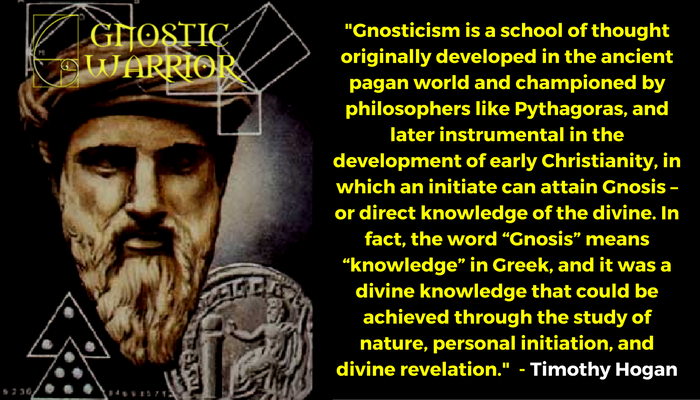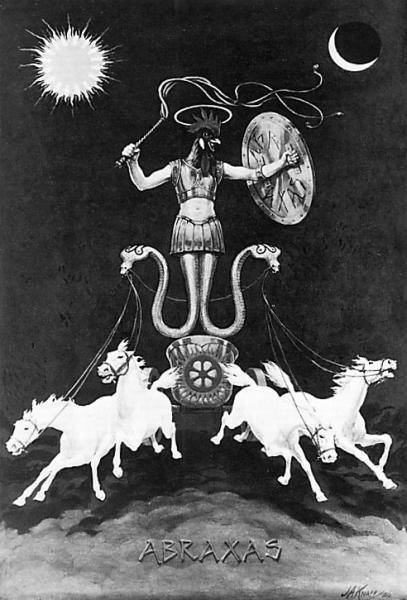
“Gnosticism is a school of thought originally developed in the ancient pagan world and championed by philosophers like Pythagoras, and later instrumental in the development of early Christianity, in which an initiate can attain a Gnosis – or direct knowledge of the divine. In fact, the word “Gnosis” means “knowledge” in Greek, and it was a divine knowledge that could be achieved through the study of nature, personal initiation, and divine revelation.
As a result, schools of initiation were set up by the Gnostics in order to engage in study and initiation, and to attain connection with the path of Sophia- the Greek word for “wisdom”. In fact, this is where the word “philosophy” comes from- as it is from the Greek words “Philo”- meaning “to love”, and “Sophia”, being the goddess of wisdom. The term philosophy is believed to have been coined by Pythagoras, and some have associated Pythagoras’ school with a form of Pagan Gnosticism.
The term philosophy is believed to have been coined by Pythagoras, and some have associated Pythagoras’ school with a form of Pagan Gnosticism. Gnosticism therefore showed the connection between God and Nature, and contributed to the esoteric sciences of alchemy and sacred geometry. The “G” emphasized in Freemasonry
The “G” emphasized in Freemasonry may therefore have other implications! It has also been argued by many researchers that Gnosticism was a new label for the pagan philosophies and doctrines found in Hermeticism, which had just been rewrapped in new packaging. Indeed, Hermeticism and Gnosticism share many fundamental details.” – Timothy Hogan

Moe is the founder of GnosticWarrior.com. He is a father, husband, author, martial arts black belt, and an expert in Gnosticism, the occult, and esotericism.








